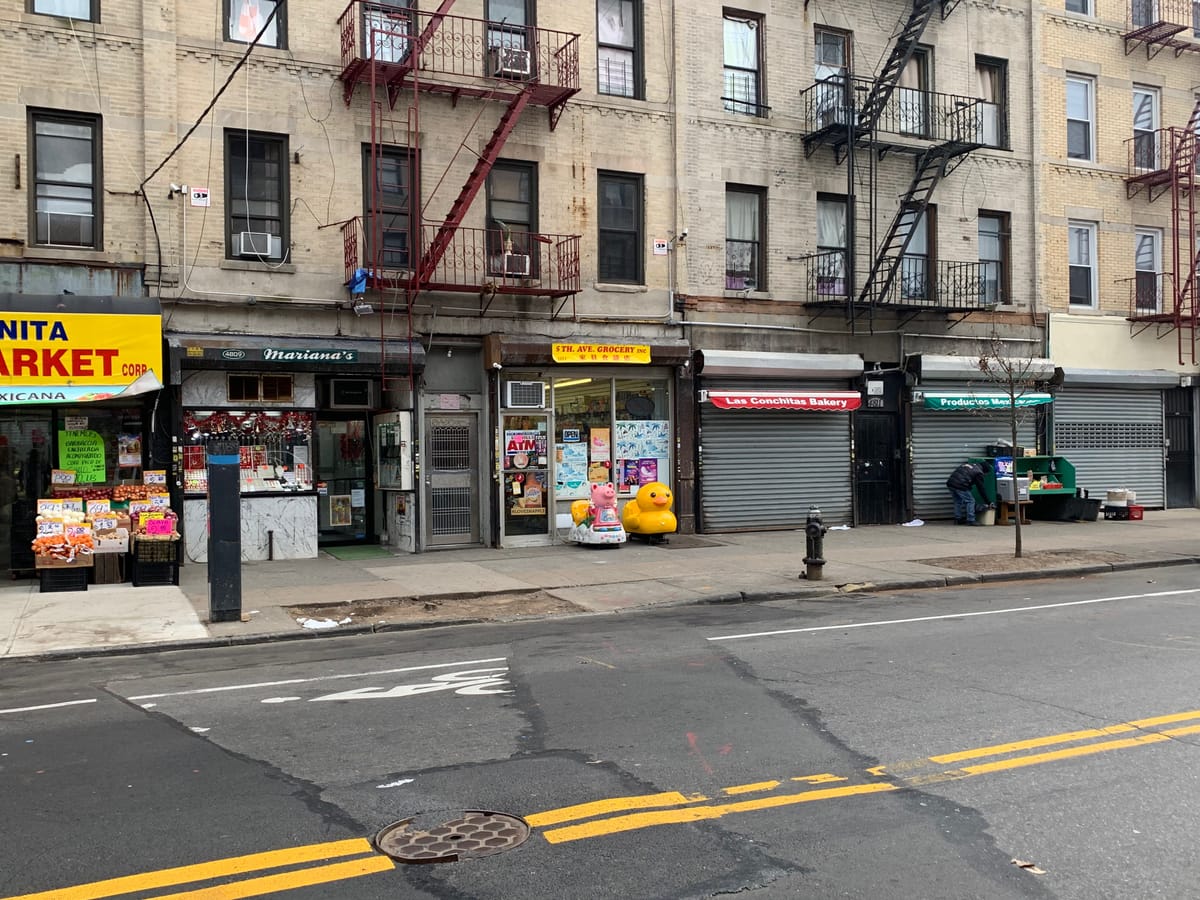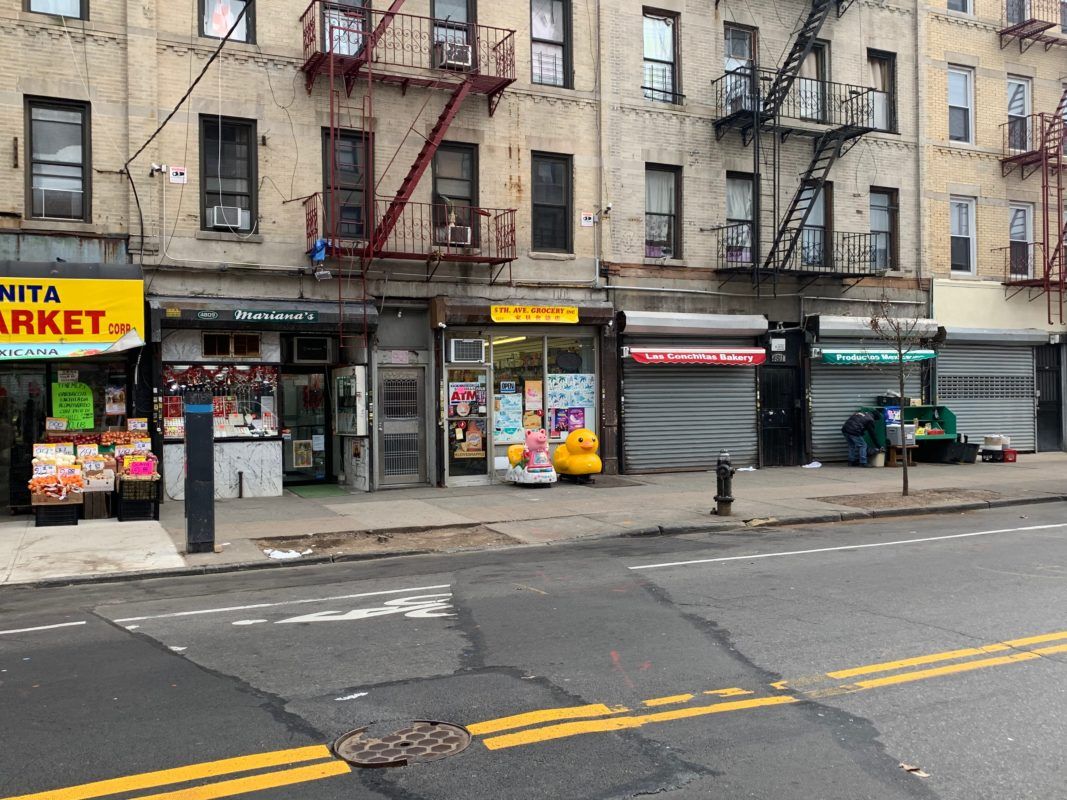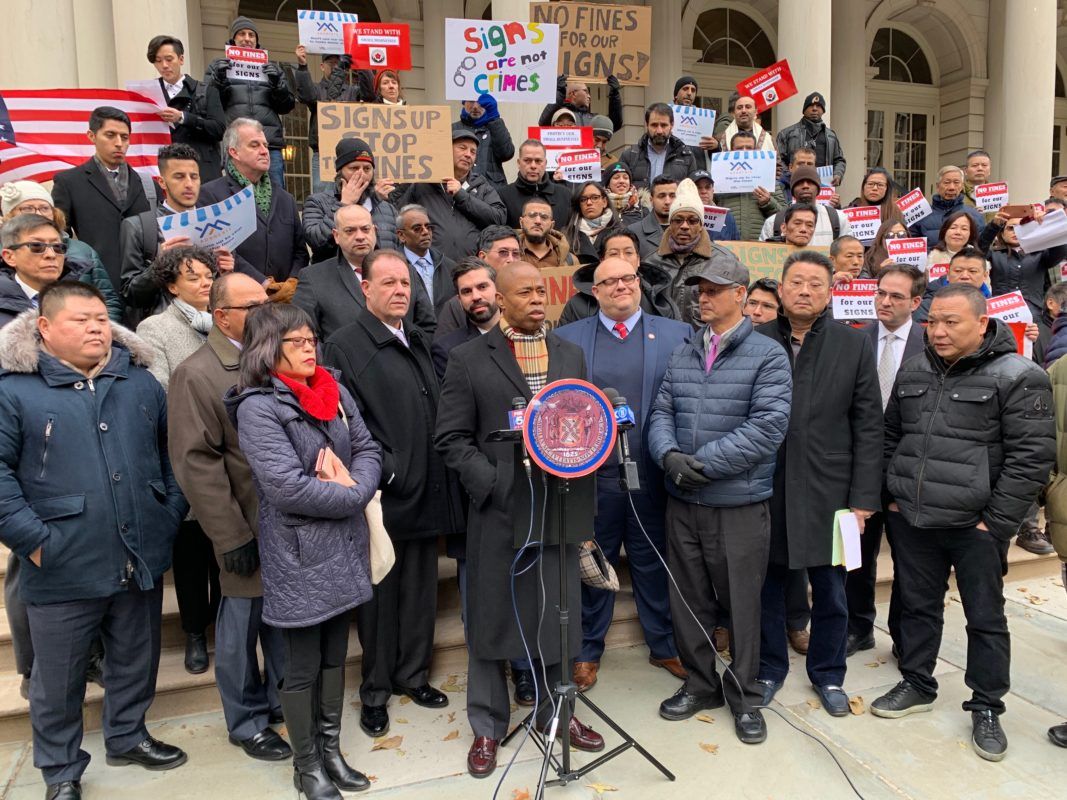City Council Passes Awnings Act, What You Need To Know If You Have A Storefront


City Councilmember Rafael Espinal’s Awnings Act overwhelmingly passed the City Council Wednesday, providing relief to small businesses throughout Brooklyn, especially Sunset Park, Ditmas Park, and Bay Ridge.
46 council members voted for the bill, including Espinal, Justin Brannan, and Carlos Menchaca, who were vocal about the sudden wave of fines that swept the city last year, resulting in many small businesses removing their signs.
“I am incredibly proud to have stood shoulder-to-shoulder with our small business community to create the Awnings Act,” Espinal said in a press release. “Unfair penalties have burdened small businesses to such an extent that some were worried they would have to close for good. Today, we are changing that, and delivering relief to our small business community.”
According to Espinal’s office, the final Awnings Act will:
- create a 2-year moratorium on new fines for signage
- rescind all outstanding signage fines
- give businesses that have already paid fines a discount on future signage permits
- reduce the fees for signs and awning permits going forward

The bill would also require the Department of Buildings, Small Business Services and the Department of City Planning to put together an education program to make sure business owners understand the laws and regulations surrounding signs.
“If you have a violation and haven’t paid the penalty, don’t. You are no longer obligated to do so, and can resolve the violation without paying,” Menchaca said in his own statement. “Moreover, the City now has an obligation to set up an outreach program to educate you about how to get your signs into compliance.”
“This bill will help small businesses with signs they thought were perfectly legal but have suddenly been targeted with exorbitant fines,” Brannan said in a statement.
Many signs throughout the city are not up to code, but went unnoticed until a mysterious wave of 311 complaints began sweeping the city last year, causing tickets as expensive as $6,000 to be issued, mainly to small mostly immigrant-run businesses like bodegas and take-out restaurants. Fined businesses also have to pay to hang a new sign, which can add thousands more dollars to the original fine.
The bill was originally expected to be passed in December, but hit a few snags requiring changes. Espinal originally sought full refunds for already-fined businesses, but that was not possible due to regulations against the city giving gifts to private entities.
An earlier version of the bill also allowed any general contractor to begin hanging signs, instead of the small number of city-licensed sign hangers. Sources tell Bklyner the city administration wanted to include that provision, but the Sheet Metal Workers 137 Union, as well as several non-union sign hangers, voiced objections to the provision, citing public safety concerns, leading to the delay. (This was first reported by Kings County Politics).
Councilmembers felt it was best to pass the bill without the provision in order to stop any further violations from happening.
“We had several discussions with them and it became clear that there is a significant need for opening the market, but including the general provision clause was not a thorough enough clause to effectively address the issue,” Caitlin Kelmar, Espinal’s legislative director, told Bklyner.
That and other issues will be addressed by an interagency task force to “explore issues related to accessory sign regulations in the building code and zoning resolution,” as well as evaluate the rules involved in obtaining a sign-hanger’s license.
The task force will have 17 members from a wide variety of organizations, including labor unions, and has a year to investigate these questions and then will submit a report to Mayor Bill de Blasio and the Council.
Only Queens Democrat Daniel Dromm voted against the bill, though Brooklyn CM Kalman Yeger did abstain. (We asked Yeger’s office why, and will update if we hear back).
Once de Blasio signs the bill, the moratorium will take effect immediately.




